With 12 states opposing a proposed exercise to update the National Population Register (NPR), this could be the first time India’s decennial census exercise may face some disruption. That’s because the house listing phase of the census and NPR update—although two separate exercises—will be conducted simultaneously across the country from April 1 to September 30. With Telangana becoming the 12th state refusing to allow the NPR exercise in its current format, state assemblies representing almost half the country’s population have opposed the planned door-to-door survey to collect a range of personal data.
States Cry Halt
The Telangana assembly’s resolution against the Citizenship (Amendment) Act (CAA), the National Register of Citizens (NRC) and NPR came close on the heels of the Delhi assembly passing a resolution against NPR and NRC. Both resolutions reflect the concerns also raised by other state governments that the NPR exercise will be the precursor to a nationwide NRC—a claim reiterated by BJP leaders on multiple occasions. The country has been witnessing widespread protests against CAA, NRC and NPR since December.
The resolutions should worry the BJP as they come despite Union home minister Amit Shah trying to delink NPR from NRC. Shah assured Parliament that no documents would be necessary for NPR, and no one would be marked ‘D’ (doubtful citizen). In its resolution, the Telangana assembly said CAA should be understood in conjunction with NPR, which is being updated under the Citizenship (Registration of Citizens and Issue of National Identity Card) Rules, 2003. “The Ministry of Home Affairs annual report (2018-19) stated that the NPR was the first step towards creation of the NRC,” the resolution adds, besides expressing apprehension that the census operation may get affected by the prevailing confusion. “The conflation of NPR and the census exercise has resulted in endangering the integrity and safety of the census exercise. It is essential that data collection under the Census Act, 1948, is not harmed as a result of the justified mass anxiety against NPR,” it says.
These sentiments are echoed by many states. While Kerala and West Bengal were among the first states to pass resolutions against CAA, four Congress-ruled states—Punjab, Rajasthan, Chhattisgarh and Madhya Pradesh—also protested against the new law, calling it discriminatory. The BJP’s alliance partners in Bihar (JD-U) and Tamil Nadu (AIADMK) also announced their decision to oppose NPR and NRC.
So why are the states against NPR even after the home minister’s assurance? The 2003 law under which the NPR exercise is being conducted empowers the local registrar to mark people as “doubtful” at the verification stage. “During the verification process, particulars of such individuals, whose citizenship is doubtful, shall be entered by the local registrar with appropriate remark in the population register for further enquiry and, in case of doubtful citizenship, the individual or the family shall be informed in a specified proforma immediately after the verification process is over,” reads sub-rule 4 of Rule 4 of the 2003 law. While the government has powers to issue a new set of rules, the minister has been silent on bringing in an amendment in this regard. Without any legal backing, verbal assurance doesn’t hold water, the states say. The citizenship law states that the NRC would use data collected from the NPR. If those marked ‘D’ fail to furnish documents to prove their citizenship, they would be declared “illegal migrants”. “The NPR data can be arbitrarily used along with NRC and CAA for enabling the government to tailor a voter list according to its whim,” says activist Kavita Krishnan.
Legal experts say the stand of the states has been vindicated by the home minister’s statement. Former additional solicitor general K.V. Viswanathan says the states will have to wait for formal amendment of the rules. “The minister’s statement in Parliament has to be translated into the rules by bringing in amendments. Until the rules are clarified, confusion will prevail. Hence, the NPR process should be suspended all over India for the time being,” says Viswanathan.
Anxiety among the public over a nationwide NRC update has compelled many state governments to stall the NPR process, fearing public hostility towards enumerators. The fear was echoed by a Parliamentary Standing Committee in February, when it warned the Ministry of Home Affairs that the census exercise may be disrupted if there’s a lack of consensus between the states and the Centre. Most of these state governments have written to PM Modi expressing their concerns, but they are yet to receive a response.
While governments of Kerala, Punjab, West Bengal, Madhya Pradesh, Chhattisgarh and Pondicherry announced they will not conduct the NPR alongside the census this time, Telangana, Andhra Pradesh, Tamil Nadu, Delhi and Bihar are planning to follow the 2010 NPR format instead of the new one. The states object to the new format that includes date and place of birth of one’s parents, along with biometric details. These are in addition to name, age, sex, relationship in household, nationality, educational qualifications, occupation, date of birth, birthplace, marital status, residential address and mother tongue.
Kerala, the first state to pass a resolution against CAA, has also suspended NPR updating. Finance minister Thomas Issac says Kerala will not conduct the exercise at any cost and, if the Centre still insists upon it, it could lead to a constitutional crisis. The state has also filed a suit in the Supreme Court under Article 131 of the Constitution.
With twin resolutions against NPR and NRC, Bihar became the first NDA-ruled state to reject both in the present format. As both resolutions were unanimously supported by the 54 BJP MLAs in the assembly, it was seen as the party climbing down from its stated position on the issue. “There is no question of implementing NRC in Bihar. For NPR, we will go by the 2010 format,” says JD-U leader K.C. Tyagi.
The Tamil Nadu government led by BJP ally AIADMK has decided to keep the NPR process in abeyance until the Centre clarifies some issues. Congress-ruled Rajasthan, which passed a resolution against CAA, NRC and NPR, is awaiting a response from the Centre on issues related to NPR. Abhay Kumar, principal secretary of Rajasthan government’s cooperative department, says the roadmap for the census will be decided soon.
The Congress-led government of Punjab has said it wouldn’t go against the assembly resolution on NPR and NRC. “The Punjab government has decided to conduct the first phase of the census from May 15 to June 29. The decision on NPR will be taken later and no action has been taken so far,” says Sanjay Kumar, additional chief secretary of the state.
In Telangana, many believe the assembly resolution is CM K. Chandrashekar Rao’s way of sending a political message to Muslims as local body polls are around the corner. In Andhra Pradesh too, many political observers claim that CM Y.S. Jaganmohan Reddy’s U-turn on NPR seems to be aimed at wooing Muslims. “Some of the questions in the new NPR format are causing insecurity in the minds of minorities. We have decided to request the central government to revert to the 2010 format,” says Reddy’s close confidant, Sajjala Ramakrishna Reddy.
As the contentious issue of NPR could potentially lead to a constitutional crisis, experts say the Centre has the right to take punitive action against the rebelling states as citizenship laws come under the purview of the central government. According to constitutional expert Subhash Kashyap, states are bound by the Constitution to go by the directives of the Centre. “Under the Constitution, citizenship laws are entirely a Union subject. The states have to obey the Centre’s law in this matter. Since NPR is under the 2003 law, it is part of the citizenship exercise, and the state governments have to abide by it. If they do not, they will be violating the Constitution,” says Kashyap.
However, former ASG Viswanathan says states cannot be faulted for stalling NPR as the home minister has made a solemn statement in Parliament this regard. “In an ordinary scenario, when there is a parliamentary law, the states cannot protest and can only go to court. In this scenario, as there is a statement from the home minister, there is good ground for what the states have said. There cannot be any action against them,” he says.
***

Delhi
Arvind Kejriwal
The AAP-dominated assembly passed a resolution against NPR and NRC. It demanded withdrawal of NPR, but also requested the Centre to stick to the 2010 format if it carries out the exercise. The move may come as a morale booster to Muslims protesting against CAA.
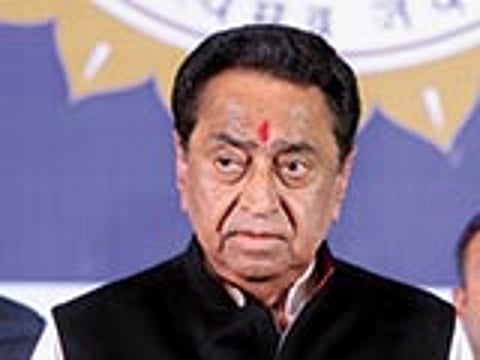
Madhya Pradesh
Kamal Nath
The Congress-ruled state passed a resolution against CAA. No NPR will be conducted in the state.
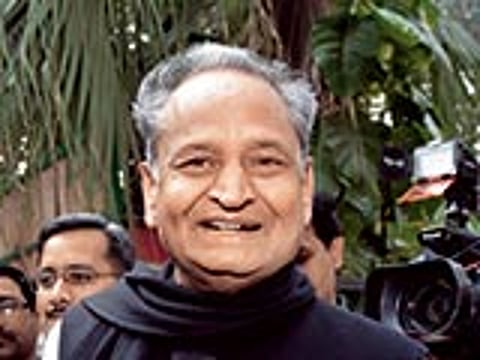
Rajasthan
Ashok Gehlot
The Congress-ruled state passed a resolution against CAA-NRC-NPR.

Punjab
Amarinder SIngh
One of the first Congress-ruled states to pass a resolution against CAA,Punjab has also put NPR on hold.
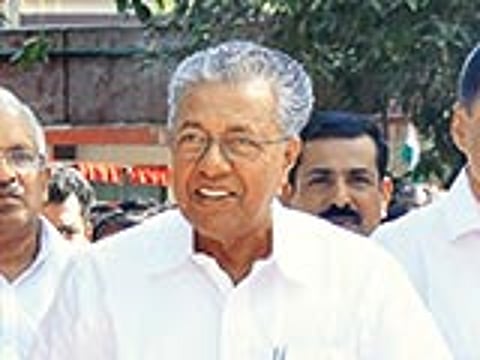
Kerala
Pinarayi Vijayan
It’s the first state whose assembly passed a resolution against CAA. The LDF government has also suspended the NPR exercise and moved the Supreme Court against CAA.

Chhattisgarh
Bhupesh Baghel
The Congress government passed a resolution against CAA, calling it discriminatory, It will not implement NPR.
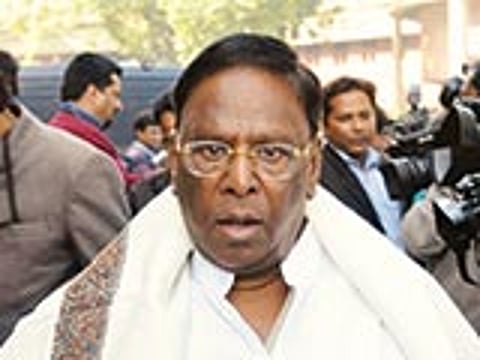
Pondicherry
Velu Narayanasamy
The Congress-ruled Union territory passed a resolution against CAA-NRC-NPR.

Andhra Pradesh
Y.S. Jagan Mohan Reddy
The state government proposed a resolution against NPR and requested the Centre to revert to the 2010 format. A U-turn ahead of the local body polls, it is perceived as a move to woo the Muslim community. The ruling YSR Congress supported CAA in Parliament.

West Bengal
Mamata Banerjee
The state assembly passed a resolution against CAA and suspended NPR. The CM spearheaded the agitation against CAA-NRC-NPR, in the state. With assembly polls due next year, this contentious issue is expected to dominate Bengal politics.
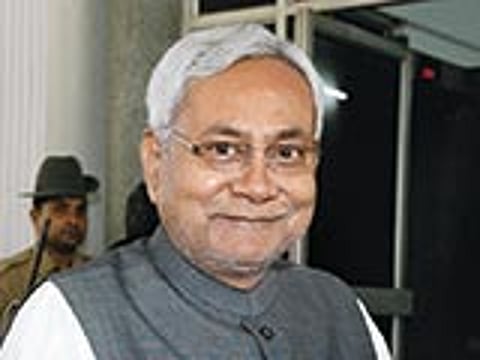
Bihar
Nitish Kumar
It became the first NDA-ruled state to pass a resolution against NRC-NPR. The state will conduct NPR in the 2010 format. With assembly polls scheduled for later this year, the move is aimed at Muslims and Dalits protesting against the new citizenship law.

Tamil Nadu
E.K. Palaniswami
The ruling AIADMK is the second BJP ally to revolt against the NPR exercise. The government has put NPR on hold until the Centre clarifies some of its concerns on the new questionnaire. Opposition DMK has been putting pressure on the government over the issue.
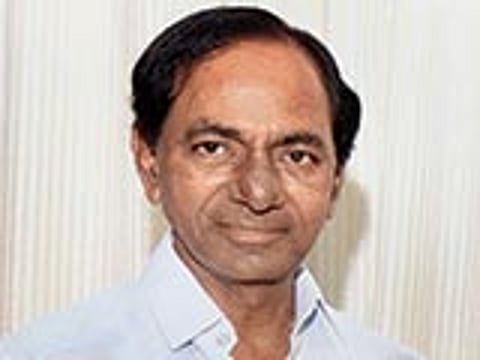
Telangana
K. C. Rao
The assembly passed a resolution against CAA-NRC-NPR. The move comes ahead of the local body elections, aimed at the Muslim community, which constitutes 13 per cent of the population. There’s also pressure from coalition partner, Asaduddin Owaisi’s AIMIM.
Tags